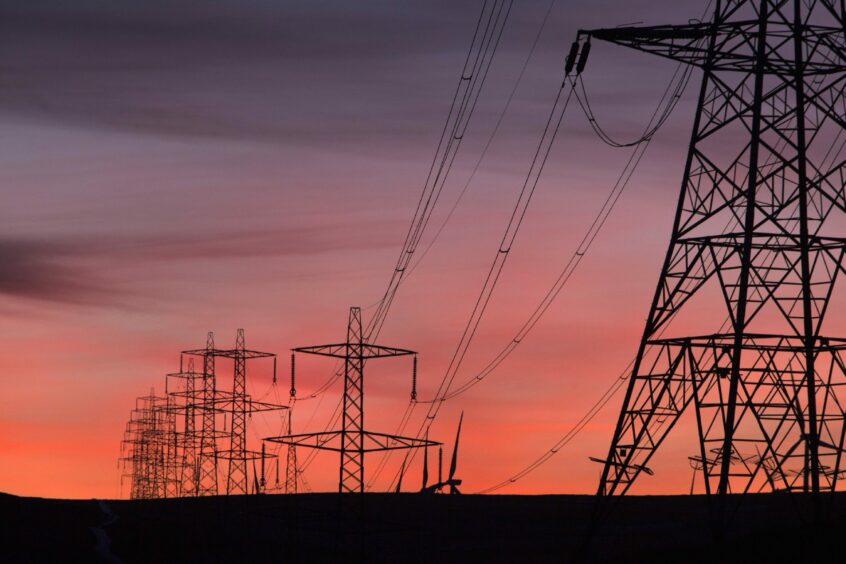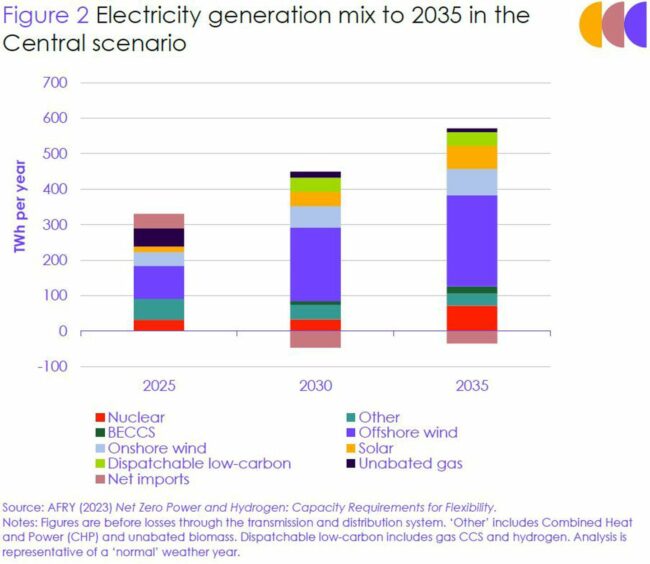
Government advisors say hydrogen, CCUS, storage and smarter demand must all be rolled out faster if the UK is to achieve a zero-carbon electricity system by 2035.
In a new report released Thursday the UK’s Climate Change Committee (CCC) warned the government was “asleep at the wheel” over efforts to meet that 2035 goal – and that it could be missed altogether unless the current pace of infrastructure deployment is accelerated.
Alongside the target for a net-zero economy by 2050, the British Energy Security Strategy calls for a fully decarbonised electricity system by 2035, underpinned by a massive expansion of nuclear, offshore wind and hydrogen capacity.
Indeed, the CCC analysis indicates achieving this could see electricity demand increase by 50% by 2035, and potentially double by 2050 under some scenarios, while hydrogen demand for power could outstrip UK production capacity.
The report makes 25 recommendations to improve the chances of delivery, firstly calling on the government to publish “a comprehensive long-term strategy” for its delivery – a framework that has so far been absent since the plans were announced last year.
CCS ASAP
Included in its recommendations is the need to develop and fast-track new low-carbon back-up generation, based on both hydrogen and gas-fired power stations twinned with carbon capture.
This would involve “de-risking” the CCS projects by launching the next cluster selection process “as soon as possible” and establishing market models and plans for CO2 transport and storage.
The 2035 system would enable surplus generation to produce hydrogen through electrolysis, “providing long-term storage so it can later be used to generate electricity,” the authors note.
In addition, it calls for smarter shifting of consumer demand to help smooth peaks and absorb excess supply, and new energy storage technologies besides batteries.
Crucially the CCC warned that these new technologies must be rolled out at “a much greater pace than the present regulatory, planning and consenting regimes can achieve.”
‘Asleep at the wheel’
CCC chairman Lord Deben said that “cheap, decarbonised electricity for every consumer and business is now within reach” thanks to the development of renewable technologies.
“Now there is more at stake. The Russian invasion of Ukraine has brought home the fundamental importance of energy security. A reliable energy system based mainly on UK’s plentiful renewable resources now has new significance.
“We know how to do this, but Government is asleep at the wheel.
“Recent commitments for new nuclear and renewables are welcome, but these alone are insufficient. A rapid overhaul of the planning system and regulations is needed. It is not clear where the responsibility lies for the design and operations of our modern energy system rests among key organisations.
The CCC also said it is “imperative” that the effects of climate change are also built into assessments of the country’s energy mix.
This would see detailed modelling used to set the requirements of the grid in 2035, using historical weather data – and help inform stress tests for the system in the case of extreme weather events like drought or flooding, or during a prolonged period of low wind.
Greater reliance on renewables would also reduce exposure to “volatile international fossil fuel markets”, the CCC said, underlining their impact on cost and energy security.
Green energy security
Speaking to media ahead of the report launch, CCC chief executive Chris Stark said the target was not just an important stepping-stone on the road to 2050.
“It’s also important because it’s such a clear offer to the country. It’s saying: get your heat pump, get your electric car, have faith that will be a decarbonised technology once we have finished decarbonising the power system.’”
He said the sharp focus on energy security also brings “a new dimension” to the committee’s analysis.
“You can have a whole energy system based on renewables and it can deliver the reliable energy that you need for the future whilst removing ourselves substantially from those imported fuels that have caused the chaos of the last 12 months.”
However, he noted that the emphasis placed on the transition seen in other regions like the US, EU and China was not mirrored in the approach of UK ministers.
“It’s a very achievable thing, it’s a very big prize if we achieve it, but – and it’s a big ‘but’ I’m afraid – at the moment the system is just not set up to deliver that kind of scale of ambition or pace.”
“Countries around the world are now racing for this goal,” added Lord Deben. “The UK is further ahead than most, but we risk losing our early lead at the worst possible time.”
Recommended for you

 © Supplied by Climate Change Commi
© Supplied by Climate Change Commi © Supplied by SCDI
© Supplied by SCDI